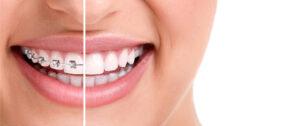Orthodontist vs Dentist for Braces: What’s Best for Your Smile?
Choosing the right professional for your smile can feel overwhelming. Many people wonder if they should see a dentist or an orthodontist when it comes to braces. The decision is important because it impacts not only how your teeth look but also how healthy they remain long-term. This guide will explain the differences between an orthodontist and a dentist for braces, highlight what each can provide, and show you how to decide which option is right for you.
Along the way, we’ll cover the benefits of specialized orthodontic treatment and what patients in Bloomington, IL can expect when considering braces.
The Difference Between an Orthodontist and a Dentist
Dentists and orthodontists both play an important role in your oral health, but their training and focus are different. Dentists handle a wide range of needs such as cleanings, fillings, and crowns. They look after the overall health of your teeth and gums. When it comes to braces, though, the difference between an orthodontist and a dentist becomes clear.
An orthodontist is a specialist who completes additional years of training after dental school. That extra education focuses on diagnosing, preventing, and correcting misaligned teeth and jaws. Because of this advanced background, orthodontists have a deeper understanding of how braces and other appliances move teeth safely and effectively.
For patients who are thinking about braces, knowing the unique role of each provider helps set realistic expectations. Dentists can offer general advice and some basic orthodontic options, but an orthodontist has the specific expertise to handle complex cases and create results that last.
Should I See an Orthodontist or a Dentist for Braces?
Many people ask this question when they first start thinking about braces. Both professionals care for your teeth, but the type of treatment you need will guide your choice. For minor alignment or cosmetic concerns, a dentist may provide simple options. For more advanced issues, an orthodontist vs a dentist for braces makes a real difference in the outcome.
If you have crowding, bite problems, or gaps that affect your smile, an orthodontist is usually the better choice. Their focused training allows them to design a plan that moves your teeth into place safely. They also have access to a wider range of appliances and technology that can improve comfort and efficiency during treatment.
Dentists are an important part of the process, too. They ensure your teeth and gums are healthy enough for orthodontic care. Many orthodontists also work closely with dentists to coordinate care, making it easier for patients to stay on track.
Benefits of Seeing an Orthodontist
When it comes to braces, there are clear advantages to seeing a specialist. Orthodontists dedicate their careers to correcting alignment and guiding teeth into healthier positions. That focus often leads to more predictable results and fewer complications along the way. Choosing an orthodontist vs a dentist for braces can also give you access to the latest techniques designed to improve comfort and shorten treatment time.
Patients often find that the oversight of an orthodontist provides extra peace of mind. Regular adjustments and close monitoring help ensure that teeth move safely. This attention reduces the chance of setbacks and supports long-term success once treatment is complete.
Some of the most important benefits include:
- Treatment plans based on advanced training and expertise
- Access to a full range of options, from traditional braces to modern alternatives
- Ongoing supervision for safer and more effective results
- Focus on long-term stability and lasting improvements in oral health
Braces from Dentist vs Orthodontist: Making the Right Choice
Deciding where to start braces can feel like a big step. Some dentists provide orthodontic services, but their training in this area is limited compared to an orthodontist. Choosing an orthodontist vs a dentist for braces ensures you are working with someone who has extensive experience in moving teeth and correcting bite issues.
The difference often comes down to depth of knowledge and variety of options. An orthodontist has more tools to handle complex concerns, while a dentist may only offer basic treatments. This can affect both the outcome and the overall experience during your time in braces.
Here is a simple way to compare the two:
- Dentists: General care, some basic orthodontic options, focus on overall dental health.
- Orthodontists: Specialized care, full range of orthodontic treatments, focus on alignment and long-term results.
Choosing between braces from a dentist or orthodontist comes down to your goals and the level of care you expect. For patients who want the most precise treatment and a plan designed to support long-term success, an orthodontist is often the better choice. Their specialized expertise not only improves results but also makes the entire process more secure and predictable.
FAQs About Orthodontic Care
Can dentists provide braces safely?
Some dentists do offer braces, but their training in orthodontics is limited. For more complex cases, an orthodontist has the specialized skills to guide treatment more effectively.
How do I choose the right orthodontic provider?
Look for a provider with advanced training, experience, and a strong reputation. Choosing the right orthodontic provider helps ensure safe treatment and lasting results.
What’s the average cost of braces in Bloomington, IL?
The cost can vary depending on the type of braces and the length of treatment. Patients considering braces in Bloomington, IL, should ask for a consultation to get a personalized estimate.
When should my child first visit an orthodontist?
Experts recommend scheduling the first visit around age seven. Early evaluation can prevent more serious alignment issues later in life.
How long does treatment usually take?
Treatment times vary based on the complexity of the case. On average, braces are worn for one to three years before moving into the retention phase.
Meet Your Trusted Orthodontist in Bloomington, IL: Bowers Orthodontic Specialists
At Bowers Orthodontic Specialists, patients receive orthodontic care that is focused on both comfort and results. Located in Bloomington, IL, our family-operated practice offers braces, Invisalign, and early treatment for children, teens, and adults.
Dr. Bowers and his team are committed to helping every patient achieve a healthy, confident smile with personalized attention at every visit.
Contact Bowers Orthodontic Specialists today to schedule your consultation and take the first step toward the smile you deserve.





